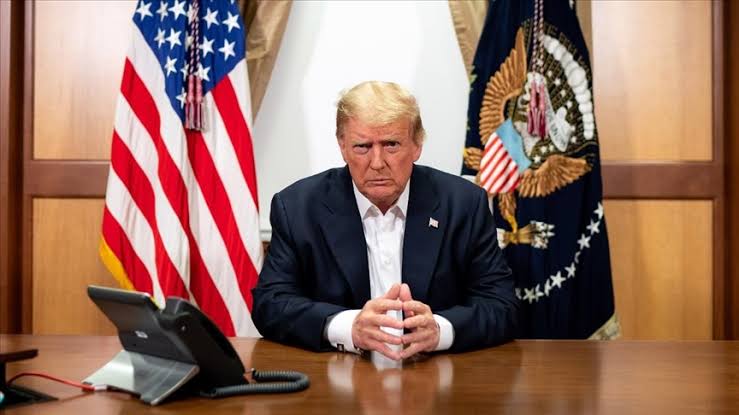The Trump administration is contemplating imposing new visa restrictions on 36 countries, including Nigeria, according to an internal State Department memo obtained by Arise News on June 15, 2025. Signed by Secretary of State Marco Rubio, the memo outlines a 60-day ultimatum for these nations to comply with enhanced security and information-sharing requirements or face potential visa bans and other entry restrictions. The targeted countries, spanning Africa, the Caribbean, Asia, and Oceania, are accused of issues such as unreliable identity documents, widespread government fraud, high visa overstay rates, and alleged “antisemitic and anti-American activity” by their citizens.
Nigeria, with a population exceeding 200 million, stands as the largest nation potentially affected by these proposed measures. The memo lists 25 African countries, including Angola, Benin, Cameroon, Egypt, Ethiopia, and Ghana, alongside Caribbean nations like Antigua and Barbuda and Dominica, and others such as Cambodia, Kyrgyzstan, Syria, and Tonga. The administration’s concerns center on the countries’ failure to meet U.S. standards for document verification and their alleged roles in facilitating illegal migration or harboring security risks.
The State Department has indicated that compliance with the new benchmarks could mitigate the risk of sanctions. For instance, countries that agree to accept third-country nationals deported from the U.S. or enter into “safe third country” agreements may avoid visa restrictions. However, the memo does not specify a clear timeline for implementation, leaving uncertainty about when or if the bans will take effect if demands are unmet.
This move echoes policies from Trump’s first term, notably the 2020 travel ban that targeted Nigeria and five other countries, restricting immigrant visas due to perceived deficiencies in security protocols and information-sharing practices. That ban, which sparked significant controversy, was criticized by Democrats and immigration advocates as discriminatory, particularly for targeting African and Muslim-majority nations. The Biden administration rescinded the 2020 ban in 2021, but the new proposal suggests a return to stringent immigration policies under Trump’s second term.
The memo’s criteria for scrutiny include technical issues like unreliable passports and broader concerns about governance and public sentiment toward the U.S. For Nigeria, high visa overstay rates and government fraud are highlighted as key factors. Social media reactions reveal polarized views, with some users attributing Nigeria’s inclusion to systemic corruption and poor leadership, while others defend the country’s contributions to the U.S. economy and diversity.
Critics argue that the proposed bans disproportionately target developing nations, particularly in Africa, which accounts for 25 of the 36 countries listed. They point to the inclusion of nations like Ethiopia and Ghana, which have relatively stable diplomatic ties with the U.S., as evidence of an overly broad approach. Supporters, however, view the measures as necessary to strengthen U.S. border security and address immigration enforcement challenges.
The State Department has not finalized the list of targeted countries, and sources indicate that it may be adjusted before any formal announcement. The memo suggests ongoing deliberations, with some nations potentially exempt if they demonstrate progress in meeting U.S. demands. This flexibility has led to speculation about diplomatic negotiations in the coming weeks, particularly for countries with significant U.S. ties like Nigeria.
Historical context underscores the significance of these potential restrictions. During Trump’s first term, the 2020 ban disrupted thousands of Nigerian families and businesses reliant on U.S. travel, with critics arguing it unfairly penalized legal immigrants. The current proposal, broader in scope, could have far-reaching economic and diplomatic implications, particularly for African nations already grappling with migration and security challenges.
Public response in Nigeria has been swift, with community leaders and diaspora groups urging the government to address the U.S. concerns proactively. The Nigerian Ministry of Foreign Affairs has not issued an official statement as of June 15, 2025, but analysts expect diplomatic efforts to intensify to avoid a repeat of the 2020 restrictions. The outcome of these negotiations could shape U.S.-Nigeria relations for years to come.
The broader international reaction remains mixed, with some countries on the list, like Egypt and Cambodia, reportedly seeking clarification on the specific benchmarks they must meet. The inclusion of Caribbean nations, which often rely on U.S. tourism and remittances, has raised concerns about economic fallout. As the 60-day deadline approaches, the global community is closely watching the Trump administration’s next steps.
No official confirmation of the visa bans’ implementation has been announced, and the situation remains fluid. The State Department’s memo emphasizes that failure to comply could lead to a range of measures, from visa restrictions to broader entry bans, though details on enforcement remain vague. For now, affected nations face a critical window to align with U.S. expectations or risk significant disruptions to their citizens’ access to the United States.




